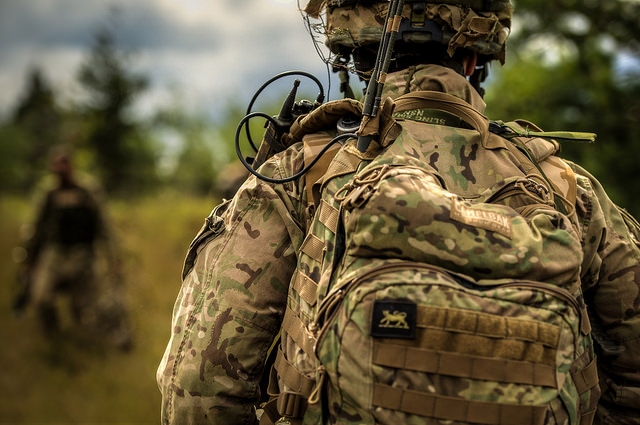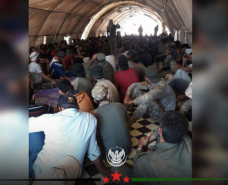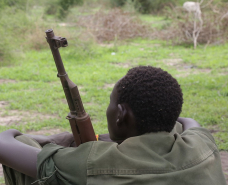MoD faces legal fight over recruitment of child soldiers

Photo: U.S. Army Europe Images
Child Soldiers International launches claim for judicial review
Campaigners are taking legal action against the Ministry of Defence today to demand the nation’s youngest soldiers are not forced into serving longer than adult recruits.
Child Soldiers International (CSI) will launch a claim for a judicial review into the terms of enlistment for minors joining the British Army.
If successful, it would reduce by up to two years the minimum service for under-18s. It would also be the biggest embarrassment for the Government regarding armed forces personnel since 1999, when the European Court of Human Rights forced the MoD to end its ban on gay servicemen and women.
The UK is the only country in Europe, and among 17 worldwide, which recruits from the age of 16. The others include Bangladesh, El Salvador, Iran, and North Korea. Canada and France accept 16-year-olds into military academies to study prior to commencing a career in the armed forces at the age of 17.
British soldiers currently have to serve until they are 22 regardless of their joining age: a 16-year-old recruit must serve a minimum of six years and a 17-year-old a minimum of five years if they serve beyond their 18th birthday – although there is an ‘opt out’ policy enabling them to leave before that date. CSI called the discrepancy a “Catch-22 clause”.
As adults can be discharged after four years’ service, the charity’s lawyers claim the Army’s rules constitute unlawful age discrimination.
CSI’s legal action comes as a poll shows huge support among the public for a minimum enlistment age of 18. The survey by Ipsos Mori on behalf of the Joseph Rowntree Reform Trust found that 78 per cent of respondents thought children should not be allowed to enlist in the Army, an increase of eight points since last year.
Around 1.3 per cent of the Armed Forces are under 18 and Government policy is not to deploy those personnel.
Richard Clarke, director of CSI, which campaigns to end the military recruitment of any minor, said: “Whatever you think the right age is for joining the Army, nobody can justify forcing the youngest recruits to serve for longer than their adult counterparts. It’s unfair, unnecessary and, we believe, unlawful.
“It’s essential to remember many of these young soldiers will be forced to put their lives on the line against their will during those two extra years, all because of a decision they made at 16 and later regretted. We think it is highly unethical for the MoD to exploit young recruits in this way.”
The Children’s Rights Alliance for England and Unicef UK are among the organisations that support calls for the enlistment age to be raised to 18.
Defence minister Julian Brazier said: “A career in the Armed Forces provides young people with a wealth of benefits and opportunities.
“We have established procedures in place to ensure that no one under 18 may join our Armed Forces without the formal written consent of their parent or guardian and no one under 18 can deploy on operations.”
Combat soldier at 18: A private’s story
Private Danny Cross joined the army at 16 and was sent to the frontline in Afghanistan two years later, where frequently came under enemy fire. He returned home on leave during which time he heard two friends had been killed. He became so traumatised at the thought of returning to battle that he got a friend to drive over his leg.
After confessing to a military doctor what had happened Pte Cross, from Reddish, Stockport, appeared before a court martial charged with malingering and was sentenced to 18 months’ detention.
Appeal Court judges overturned the decision when they read a psychiatric report that listed the devastating effect of his combat experiences. Pte Cross served in the Mercian Regiment and underwent battlefield training in Africa but failed to complete it, before being deployed to Afghanistan. He was dismissed from the Army.
Source: The Independent
Countering Military Recruitment

WRI's new booklet, Countering Military Recruitment: Learning the lessons of counter-recruitment campaigns internationally, is out now. The booklet includes examples of campaigning against youth militarisation across different countries with the contribution of grassroot activists.
You can order a paperback version here.








